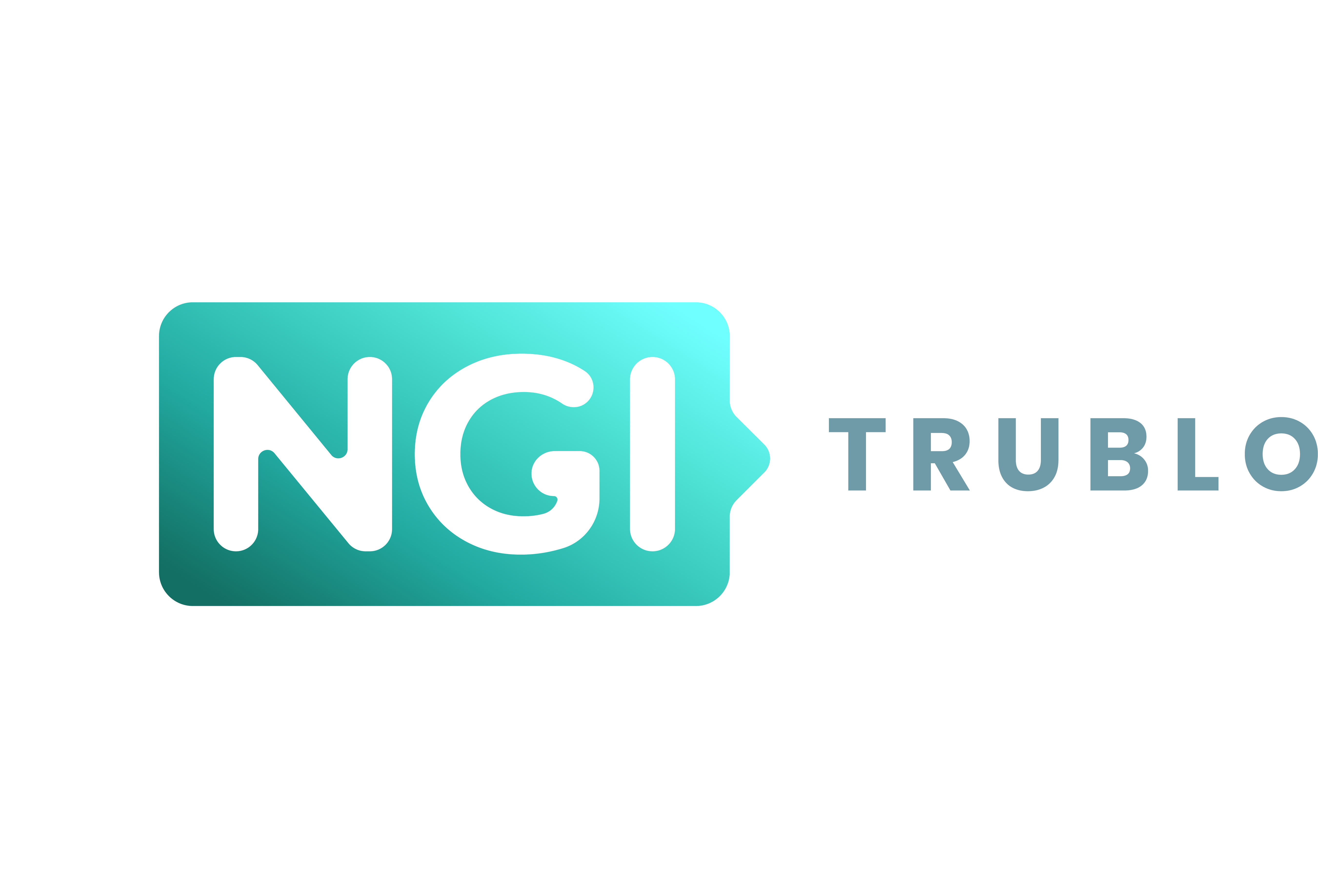
Five Minute Blockchain – Weekly Newsletter #30
Five Minute Blockchain
Weekly Newsletter No. 30
News and updates from the intersection of trust, content and blockchain.
Estimated reading time: 4 minutes, 49 seconds. Contains 965 words.
FEBRUARY 7, 2022
This week:
- Info event for TruBlo open call 3
- Facebook shrinks (a little) and loses (a lot of) stock value
- Pecan gets funding for predictive analytics
- Dune Analytics enables blockchain dashboards
- China designates blockchain test areas
The newsletter is brought to you by the TruBlo project: We are funding 45 early-stage ideas for “trusted content on future blockchains”.
The current open call #3 is available until March 30, 2022. Consider applying if you have a good idea.
- Share: Share this newsletter with colleagues or friends
- Social: Follow us on Twitter for direct interactions or questions
PROJECT UPDATE
Information event: How to apply for TruBlo open call 3 – February 8, 11:00 CET
Join us for this one-hour event on February 8, 11:00 CET. What we cover: How to get funded by TruBlo and how to apply. Mirko Ross from Asvin GmbH will report how their project D-SBOM got funding (open call 2). Further, he will talk about why they participated. The info event is organized in collaboration with Berlin Partner, an economic development agency initiated by the city of Berlin.
TRUST
A second spy firm exploited an iPhone security flaw
Last week, we linked to articles where a human rights activist reported how her iPhone was hacked using the NSO Pegasus software. This week, Reuters reports that another spy software firm also used the security flaw. Apple fixed the flaw in September 2021. The exploit allowed for forced entry and did not require any installation of malware by the user.
Machine Learning “lacks access” to training data against bias
Machine Learning researchers questioned in a survey said that they “lack access” to datasets that would help train their models. This would be needed to avoid biased judgement and other ethical issues. ML models tended to make biased recommendations in the past, e.g. when judging criminal suspects based on available data.
CONTENT
Have you seen “Line goes up” and what do you think?
“Let me tell you a story”, these are the opening words of Dan Olson, creator of “Line Goes Up – The Problem with NFTs”. The YouTube video is a deep (and lengthy) criticism of the current NFT (non-fungible token) market. Published on January 21, 2022, the video has already reached four million views. Olson NFTs says NFTs are currently “the topic that sucks all the air out of the room”. Crypto news website “Coindesk” published a review of the video, but by and large, agreed that the views presented in “Line goes up”.
The company behind Bored Ape NFT seeks multi-million dollar investment
Despite the many doubts about whether NFTs are a sustainable business, companies have no big problem finding investors. The “Financial Times” reports that Yuga Labs, the company behind the “Bored Ape Yacht Club“, is in talks with top venture capital firms such as Andreesen Horowitz at a valuation of $4bn to $5bn. NFTs from the platform have been bought by celebrities such as Gwyneth Paltrow and Snoop Dog, which gave the platform some publicity. In other news: Buzz Feed revealed the identities of the founders. Interesting to read. A key motivation of the investigators was that you can’t hold a company accountable if you don’t know who founded it.
The day Facebook started to shrink
Meta (the former Facebook) reported a slight decline in the number of users for the first time. As a result, the stock price dropped by almost 25% overnight, wiping out roughly $200 billion of book value. Casey Newton has a post reflecting on the company’s long, long growth period and what comes next.
Pecan gets $66M funding for predictive analytics software
Predicting the future is considered the next level in the analytics industry, and the field is called “predictive analytics”. The core idea is that if you can understand many variables, you might be able to tell what is next. Reliable predictions would enable business planning into the future, which is why there are high hopes for significant revenues once there is a solution. Last week, Pecan, a company based in Israel, received a funding of $66 million after already getting $35 million in May last year.
BLOCKCHAIN
Blockchain Bridge Wormhole loses Ether worth $320 but manages to get it back
Sometimes stories are like a rollercoaster. Example: This week, Wormhole, a popular blockchain bridge, reported losing access to $325 million worth of Ether.
The Verge has insights how a vulnerability made this possible:
“To carry out the attack, the attacker managed to forge a valid signature for a transaction that allowed them to freely mint 120,000 wETH — a “wrapped” Ethereum equivalent on the Solana blockchain, with value equivalent to $325 million at the time of the theft — without first inputting an equivalent amount. This was then exchanged for around $250 million in Ethereumthat was sent from Wormhole to the hackers’ account, effectively liquidating a large amount of the platform’s Ethereum funds that were being held as collateral for transactions on the Solana blockchain.”
Later the Wormhole team sent an offer of $10 million if assets were returned. The message was embedded in an transaction sent to the Ether wallet where the funds were now stored. In between the platform announced that is had replenished the lost Ether, out of funds from their investor.
Then, on Thursday, Feb. 3, the project tweeted that “all funds have been restored”. Further details how that worked had not been provided. Wormhole is a protocol enabling exchange and transfers between seven different crypto platforms, including Ethereum, Polygon, Solana and Binance Smart Chain.
Dune Analytics, a blockchain analytics platform, raises $69.4 million in funding
With only 16 employees, Dune Analytics has achieved unicorn status, based on the new investment of $69,4 million by Coatue, an investment company. In a Coindesk article, Dune CEO Fredrik Haga is quoted saying:
“We had not made a single slide or Excel sheet – they simply came to us, had extreme conviction in what we were doing, and had done a lot of outside-in research, and gave us an offer we couldn’t refuse” (Source: Coindesk).
The company has an exciting model: To make crypto data accessible, Dune Analytics enables community-based analysis. The analysts are external experts or enthusiasts who provide interested users with data insights. For their work, they get payments in crypto.
Quick updates:
- El Salvador Rejects IMF Call to Abandon Bitcoin as Legal TenderLINK
- China designates 15 blockchain pilot zones, including Shanghai and Beijing. The goal is to carry out projects in “various fields of manufacturing, energy, government” LINK
- South Africa urges users to be more careful with crypto exchanges LINK
- Software-Update: With iOS 15.4 beta Apple will introduce and update face recognition while users wear a COVID mask. LINK
- While we wait for the real thing: Over 500 apps already use the term metaverse to attract users. LINK
- There is a government plan to raise a 30 per cent tax on crypto income in India LINK
- 82% of all Indians would invest in crypto if the government allows it LINK
Thank You for reading. Please forward this newsletter to colleagues: Click here to subscribe.
Do you have feedback or suggestions? Contact us
